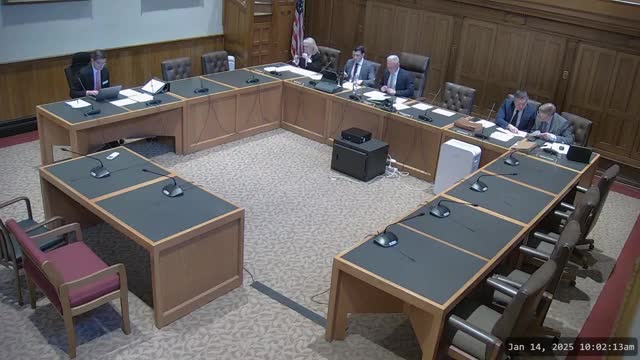Bill would let state‑chartered credit unions allow member vote to compensate directors; supporters say it aids governance
Get AI-powered insights, summaries, and transcripts
Subscribe
Summary
Senate Bill 25 would permit state‑chartered credit unions to allow members to vote to compensate board members. Supporters — including trade groups and credit‑union CEOs — said modest compensation helps recruit and retain directors with specialized expertise; witnesses said the change would be optional and subject to member approval.
Senate Bill 25, presented to the Commerce Committee at the request of credit‑union trade groups, would let New Hampshire state‑chartered credit unions offer compensation to their directors if the membership votes to allow it.
Sponsor Sen. Dan Innes said the bill brings state law into alignment with practices in 16 other states and is an enabling statute that would not force any credit union to pay directors. “Nothing in this legislation would force a credit union to compensate their board members,” Innes said. “It is enabling legislation only.”
Witnesses for the bill included Ron McLean, president and CEO of the Cooperative Credit Union Association, who testified that state‑chartered credit unions serve more than 800,000 members statewide and that compensating directors would help attract and retain board members with necessary expertise. “This legislation represents a vital step to align New Hampshire with 16 other states that recognize the increasing time, responsibilities, and expertise required of credit‑union board members,” McLean said.
Scott McKnight, CEO of Triangle Credit Union (headquartered in Nashua), described the depth of modern board work — committees on HR, IT/cybersecurity, ALM, pensions and more — and said modest compensation can broaden the pool of qualified directors. He said compensation can take multiple forms but would not include ordinary expense reimbursements, and he cited transparency mechanisms such as Form 990 filings for state charters.
Committee members raised governance questions, including how compensation would be set and whether paying directors would create conflicts. Senator Fatt asked whether board members setting other members’ pay creates an HR problem; witnesses noted that credit‑union directors are elected by members and that Form 990 filings make compensation public for state charters. The transcript records supporters stressing that compensation would be modest, voluntary for each credit union, and accountable to members.
In executive session the Commerce Committee moved that Senate Bill 25 ought to pass; the motion carried as recorded in the committee transcript.
The bill, if enacted, would authorize member‑approved compensation options for state‑chartered credit unions but would not require payment or specify a mandatory amount; the transcript indicates advocates expect modest, varied compensation models and public disclosure.
